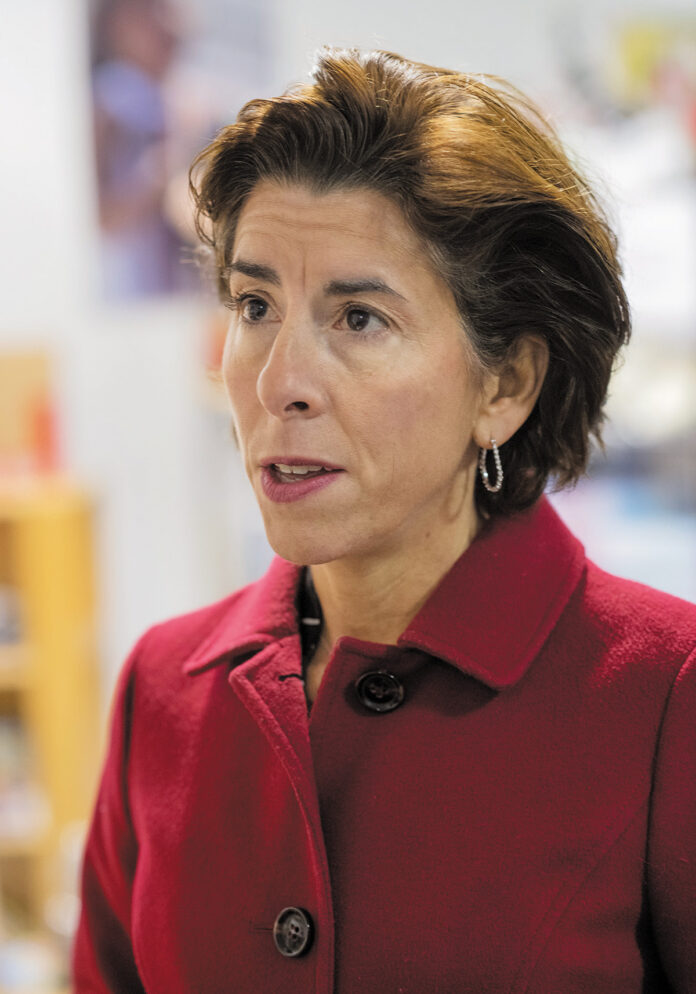PROVIDENCE – Gov. Gina M. Raimondo highlighted criminal justice reforms included in her proposed fiscal 2021 budget on Monday, at the Minister’s Alliance Martin Luther King Jr. Scholarship Breakfast.
The governor said that the changes would include implementation of recommendations from the state’s Criminal & Juvenile Justice Working Group.
The budget proposals include:
- An apprenticeship program within the state’s Department of Corrections would be created with the goal of improving post-release employment for inmates. It would receive $250,000 of the Real Jobs Rhode Island funds.
- Updating the state’s parole to include geriatric parole.
- An increase in funding for school-based mental and behavioral health programs, including a $590,000 investment to fund mental and behavioral health training for teachers and $1 million in funding to the state’s School Resource Officer Categorical, expanding the role to include mental health professionals.
- A shift in staffing to address access for inmates to health care, including four new full-time-equivalent positions that would be offset by overtime savings and medical expenditure savings.
- An incentivization of work release programs to ensure inmates receive more money, changing the work release fees to 30% of gross pay to 30% of net pay, designed to increase money paid to inmates each week for participating in a work-release program.
- A proposal to improve discharge planning to aid inmates find housing and work post incarceration, by shifting the process to be run the R.I. Department of Corrections. The budget also proposes the addition of seven full time equivalent jobs, eventually eliminating an outsourcing cost.
“Every citizen deserves to know that their criminal justice system is one truly rooted in equality and fairness,” said Raimondo. “We made major progress in my first term with our Justice Reinvestment work, but significant challenges remain. These new reforms will help eliminate barriers to reentry and shift the focus of our juvenile justice system towards rehabilitation and opportunity.”













